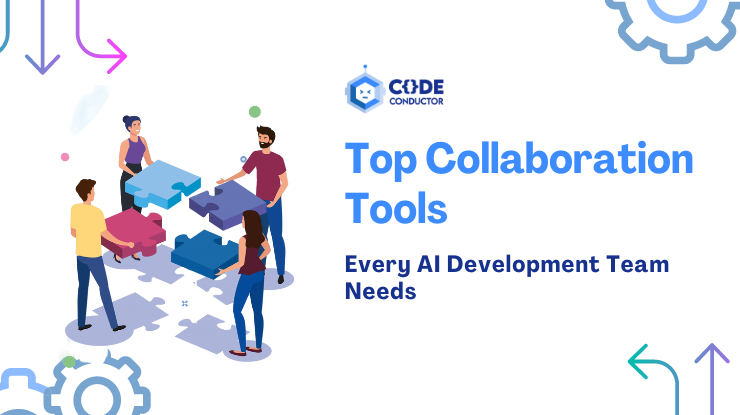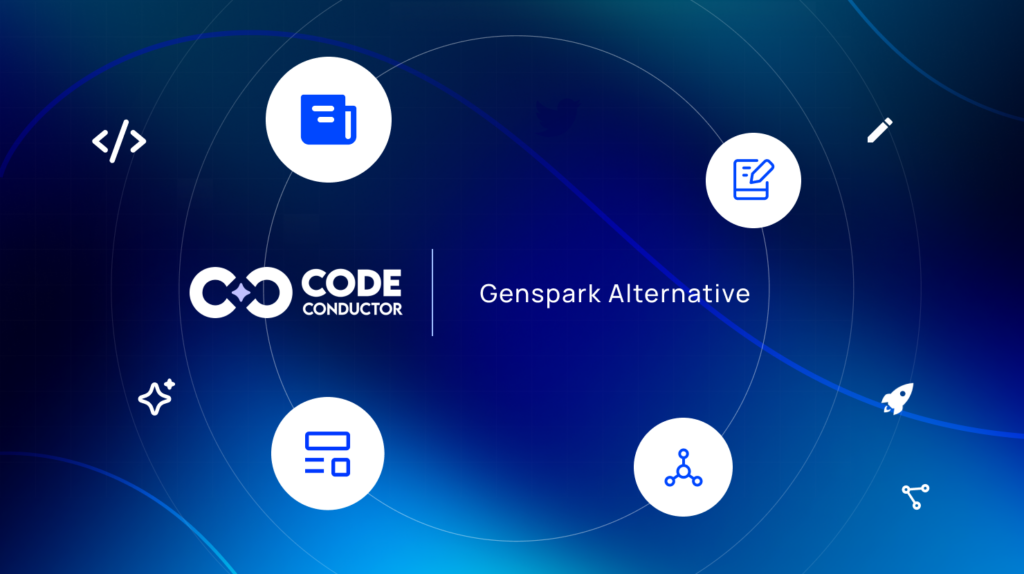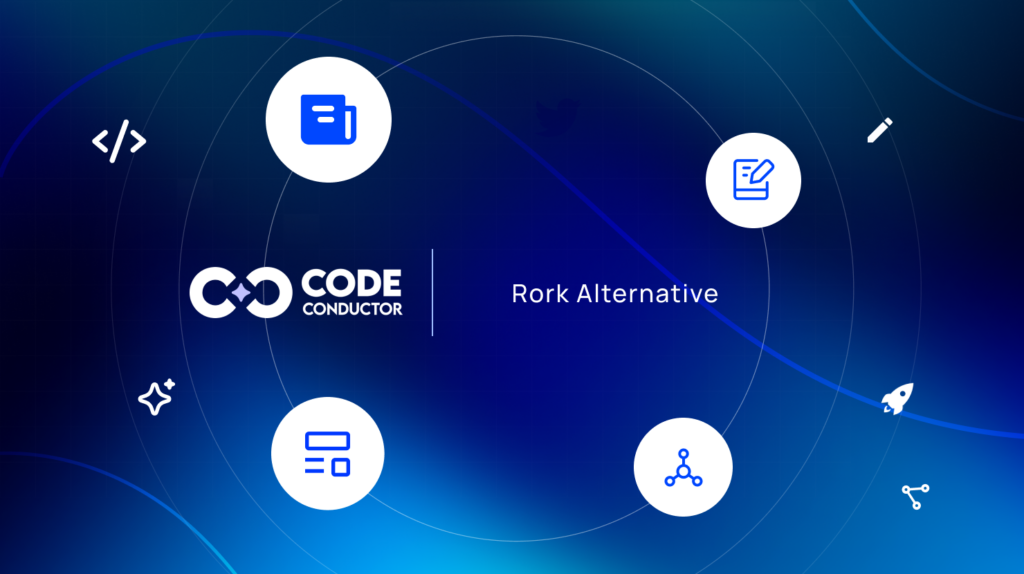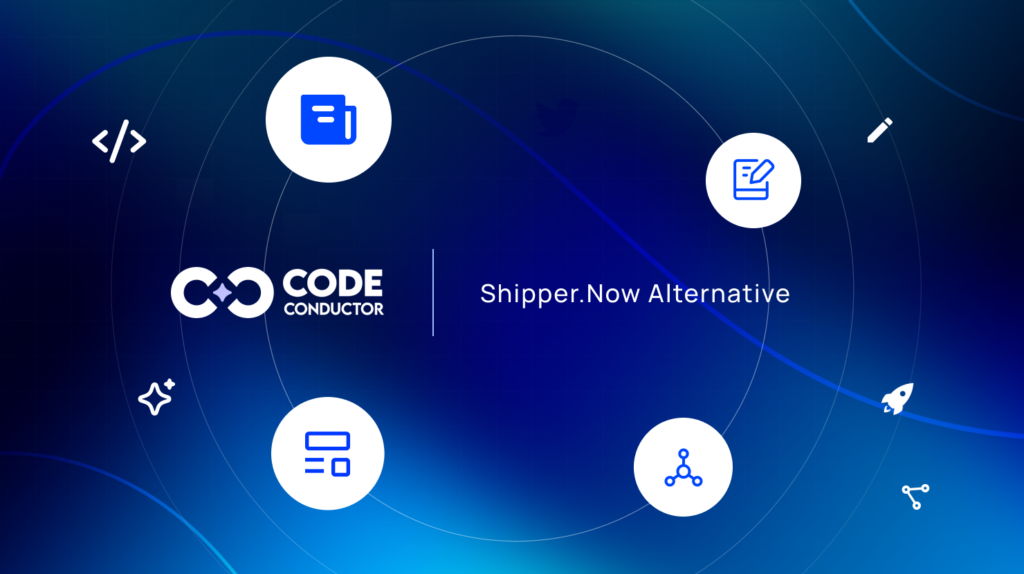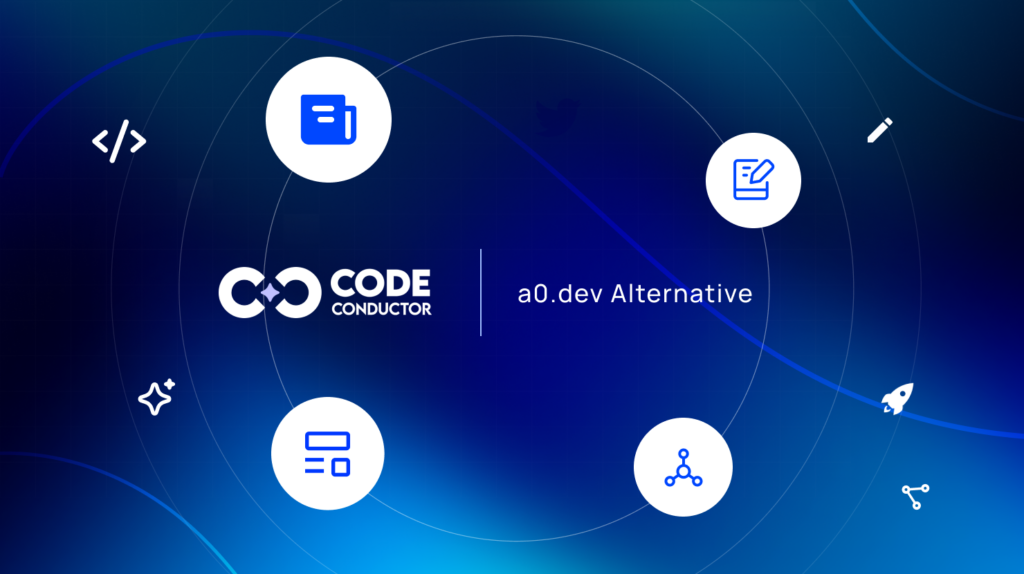Key Takeaways
- Enhanced Collaboration: Leveraging top collaboration tools like Slack, Jira, and GitHub boosts communication, project management, and version control in AI development teams.
- Improved Productivity: These tools streamline workflows, reduce delays, and enhance overall productivity by facilitating real-time updates and efficient task management.
- Data Security: Advanced collaboration tools incorporate robust security features, including encryption and access controls, ensuring the protection of sensitive AI data.
- Customizability: Many tools offer APIs and integrations, allowing teams to customize their workflows and maintain seamless data flow across different platforms.
- Cloud-Based Benefits: Utilizing cloud-based collaboration tools ensures scalability, remote accessibility, and enhanced data storage, which are crucial for distributed AI teams.
- CI/CD Support: Integration with CI/CD pipelines enables automation of testing and deployment, fostering faster and more reliable releases in AI projects.
- Documentation Management: Centralized documentation within collaboration tools ensures consistency, clarity, and easy accessibility, which is vital for AI project success.
- AI-Powered Features: Some collaboration tools offer AI-driven functionalities like automated task management and intelligent recommendations, further improving team efficiency.
Think about not missing any updates on projects that matter to you.
The way we work is evolving, and the best online collaboration tools are leading this revolution. Whether your team is scattered across the globe or sitting in the same office, a reliable collaboration tool helps everyone get work done together.
It’s estimated that the global team collaboration software market size is projected to reach $40.79 billion by 2028. [source]
According to current trends, in-person meetings will only account for 25% of team discussions by 2024. [source]
With top-notch collaboration platforms, you’re always in the loop. These tools give you access to essential information and resources exactly when you need them, without waiting for someone else to prompt you.
Collaboration tools directly relate your development team to productivity, making teamwork more efficient and effective. It’s perfect for enhancing both in-person and remote collaboration. Project management, task management, and collaborative whiteboard tools often blur together, but the best collaboration tools integrate these functions seamlessly.
Ready to boost your team’s productivity?
Here are the top AI collaboration tools for your development team, selected based on rigorous testing and analysis. Dive in and discover how these tools can transform your workday!
In This Post
- Key Takeaways
- Our Top Tested Picks: A Deeper Dive
- 7 Best Project Management Tools
- 6 Best Communication Platforms
- 7 Best Documentation Tools
- 5 Best Code Collaboration and Version Control Tools
- 4 Leading Task Management Tools
- 5 Top Collaborative Whiteboarding and Visual Collaboration Tools
- Rise of AI-Powered Development Tools
- Wrapping Up!
- Questions Curious Minds Want to Know
- 1. How can AI development teams ensure data security while using collaboration tools?
- 2. What are the challenges of using collaboration tools in remote AI development teams?
- 3. How do collaboration tools enhance productivity in AI development projects?
- 4. What role does project management software play in AI development?
- 5. Can collaboration tools be customized for specific AI workflows?
- 6. How important is real-time communication in AI development?
- 7. How do collaboration tools support continuous integration/continuous deployment (CI/CD) in AI projects?
- 8. How can AI teams ensure seamless integration between different collaboration tools?
- 9. What are the advantages of using cloud-based collaboration tools for AI development?
Our Top Tested Picks: A Deeper Dive
Nowadays, the market today is flooded with online collaboration tools. But, each one comes with its own set of unique features, making it tough to decide which ones are the best fit for your team.
Choosing the right tools isn’t just about the latest trends—it’s about finding what truly meets the needs of your organization and your employees.
To make an informed decision, we’ve compiled a list of the top online collaboration tools categorized on the basis of functions for businesses. Let’s find out which ones can transform the way your team works!
7 Best Project Management Tools
Effective project management is the backbone of successful AI development teams. Here’s a breakdown of the top project management tools, highlighting why should you pick each one and who it’s best suited for.
1. Asana
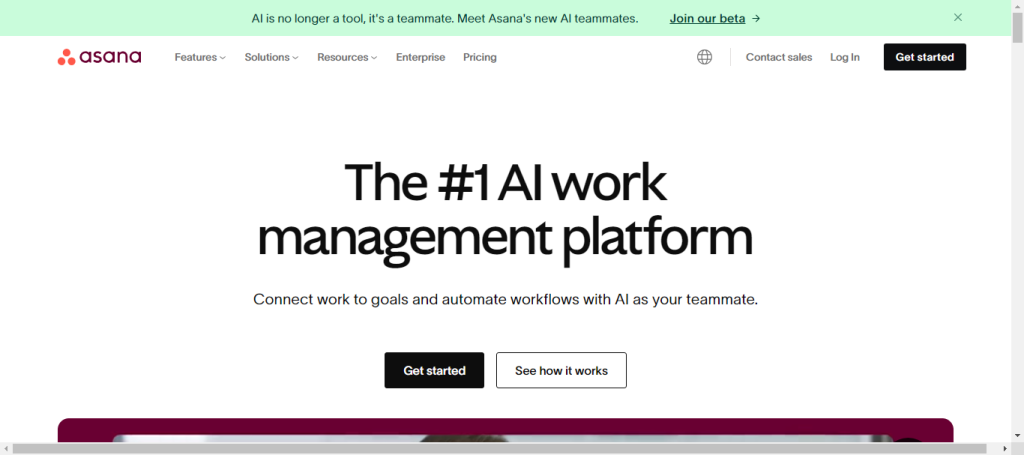
- Why Should Pick It: Asana stands out for its intuitive interface and powerful task management features. Its timeline view and project-tracking capabilities make it an excellent choice for managing complex AI projects. With Asana, teams can easily set goals, track progress, and ensure everyone stays aligned.
- Who It’s For: Asana is ideal for product managers who need a clear overview of project timelines, developers seeking an organized task management system, and app founders looking for a scalable solution to keep their teams on track.
2. Trello
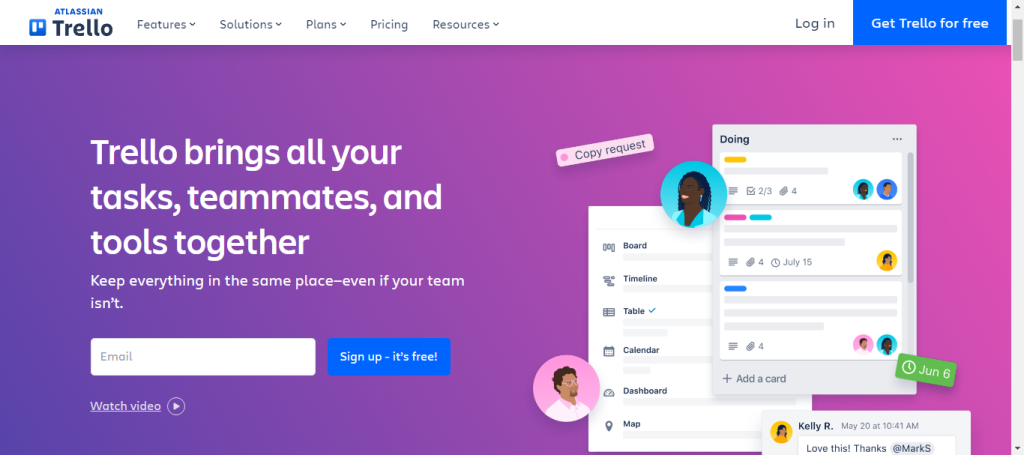
- Why Should Pick It: Trello’s simple, Kanban-style boards make it incredibly easy to visualize workflows and track tasks. Its flexibility allows teams to customize boards to fit their specific needs, whether for sprint planning, bug tracking, or feature launches.
- Who It’s For: Trello is perfect for developers who thrive on visual task management, product managers who prefer straightforward, drag-and-drop interfaces, and engineers looking for an easy way to collaborate on ongoing projects.
3. Jira
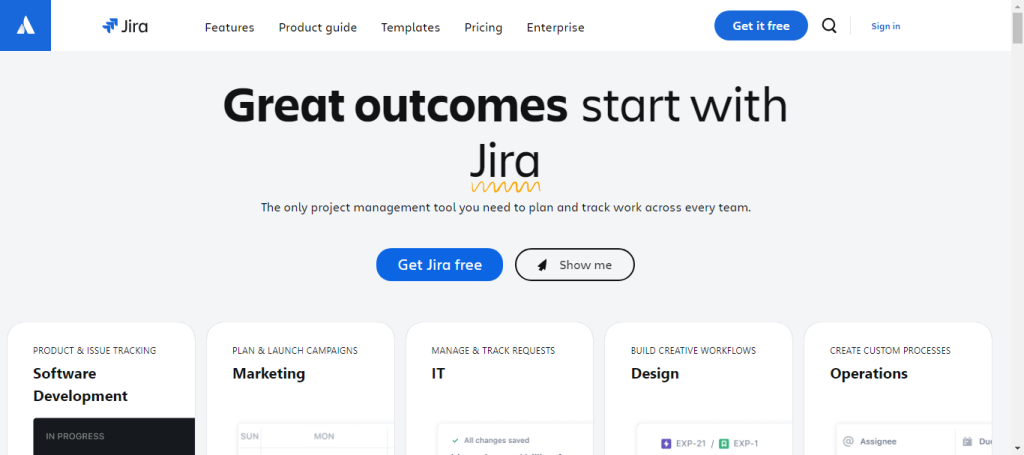
- Why Should Pick It: Jira is a powerhouse for agile development, offering robust features for issue tracking, sprint planning, and release management. It’s tailored for software development teams, providing deep integration with development tools and a highly customizable workflow.
- Who It’s For: Jira is best suited for engineers and developers working in agile environments, product managers overseeing detailed product backlogs, and app founders needing a comprehensive tool to manage development cycles from start to finish which you can learn from a scrum master certification.
4. ClickUp
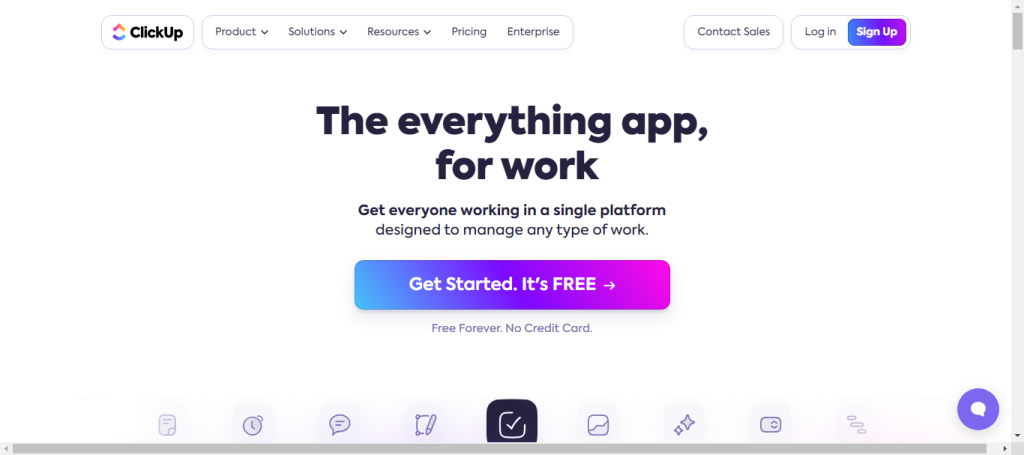
- Why Should Pick It: ClickUp offers a versatile platform that combines task management, goal setting, and time tracking. Its customizable views (list, board, box, calendar) and comprehensive feature set make it a one-stop solution for diverse project management needs.
- Who It’s For: ClickUp is great for product managers who require extensive customization, developers needing integrated time tracking, and app founders looking for a single platform to manage all aspects of their projects.
5. Basecamp
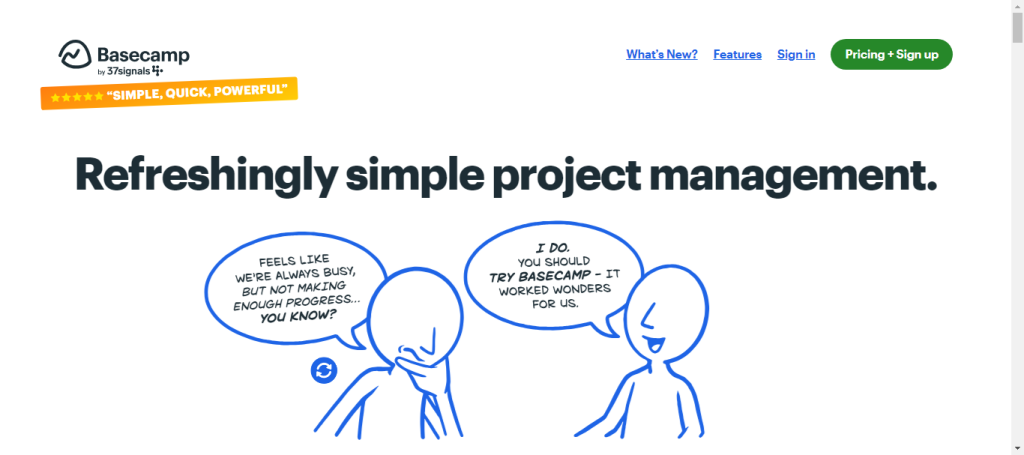
- Why Should Pick It: Basecamp is designed for simplicity and team communication. It consolidates project management, messaging, file sharing, and task tracking into one easy-to-use platform. Its focus on clarity and communication helps keep teams connected and informed.
- Who It’s For: Basecamp is ideal for app founders who want a straightforward, all-in-one tool, product managers focusing on team communication, and engineers looking for a user-friendly interface to manage tasks and share updates.
6. Airtable
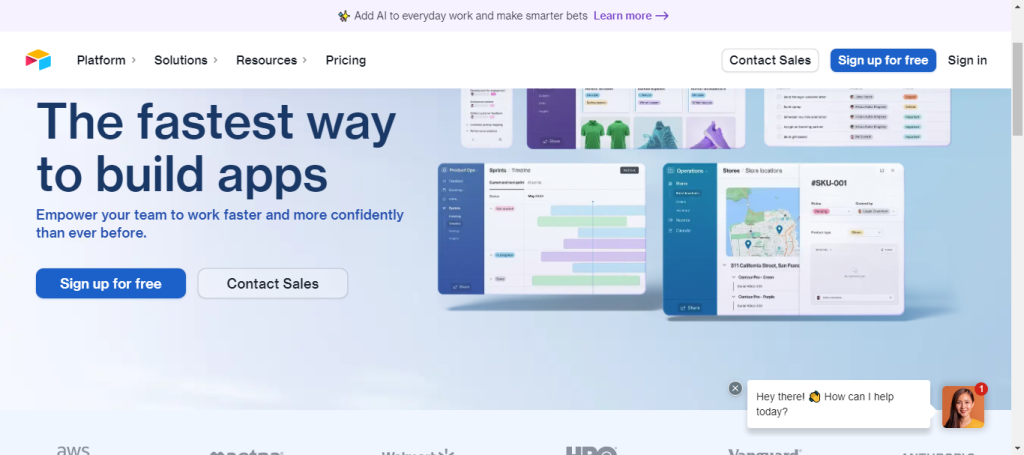
- Why Should Pick It: Airtable blends the functionality of spreadsheets and databases, offering a flexible way to organize information. Its powerful features allow teams to create custom workflows, track project progress, and collaborate efficiently.
- Who It’s For: Airtable is perfect for developers who need a customizable database solution, product managers who appreciate detailed data tracking, and engineers seeking a versatile tool for managing project data and resources.
7. Monday.com
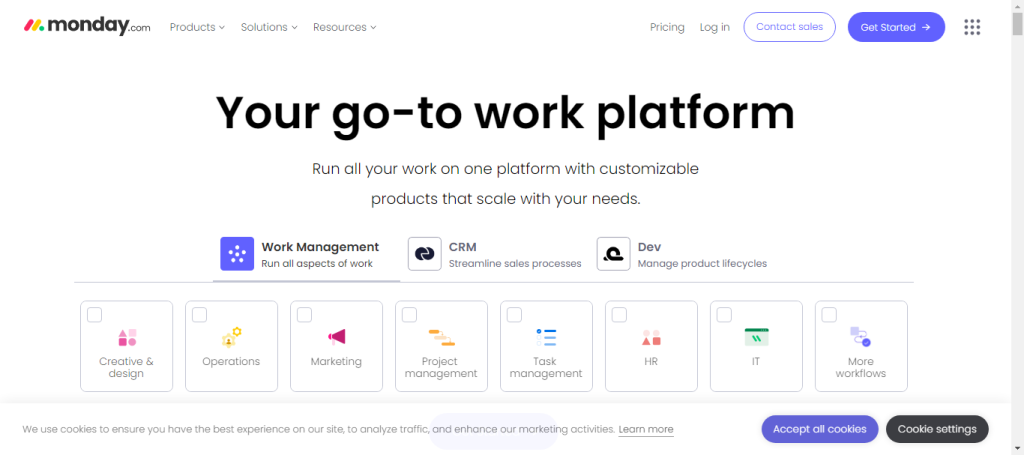
- Why Should Pick It: Monday.com is known for its vibrant interface and robust project management capabilities. It offers customizable workflows, real-time collaboration, and extensive integration options, making it a dynamic choice for managing complex projects.
- Who It’s For:Monday.com is best for product managers who need dynamic project tracking, developers seeking a highly collaborative environment, and app founders looking for a visually appealing, powerful tool to streamline their workflows.
These tools are handpicked to ensure your AI development projects run smoothly, with each offering unique strengths to meet the diverse needs of developers, product managers, engineers, and app founders.
6 Best Communication Platforms
Effective communication is the backbone of any successful development team.
Here are the top communication platforms that can keep your team connected and productive:
1. Slack
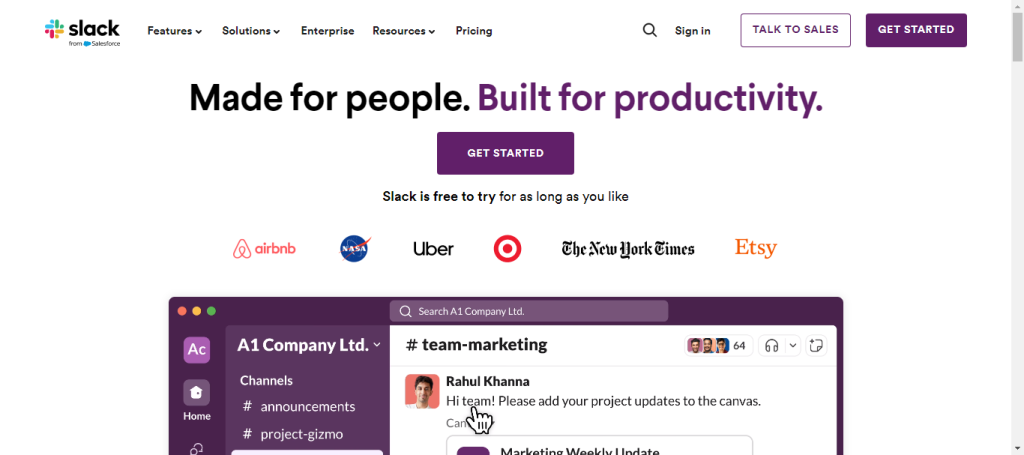
- Why Should Pick It: Slack is a powerhouse for real-time communication, offering an intuitive interface that integrates seamlessly with a myriad of development tools. Its channels, direct messaging, and robust search functionality make it a favorite among tech-savvy teams. Plus, the endless array of integrations with popular apps like GitHub, Jira, and Trello ensures that everything you need is just a click away.
- Who It’s For: Developers, product managers, app founders, and others who need a reliable and flexible communication tool that keeps all their conversations and project updates organized in one place.
2. Zoom
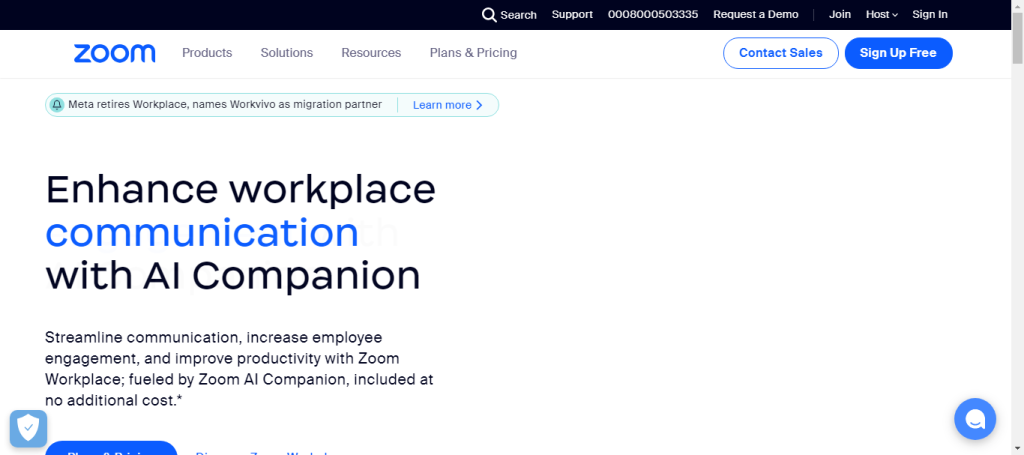
- Why Should Pick It: Zoom has become synonymous with video conferencing, offering high-quality video and audio, even on low bandwidths. Its features, such as screen sharing, breakout rooms, and recording capabilities, make it an indispensable tool for remote teams who need to conduct detailed technical discussions and collaborative coding sessions.
- Who It’s For: Remote development teams, engineers, and product managers who require a robust platform for virtual meetings, webinars, and collaborative sessions without compromising on quality.
3. Microsoft Teams
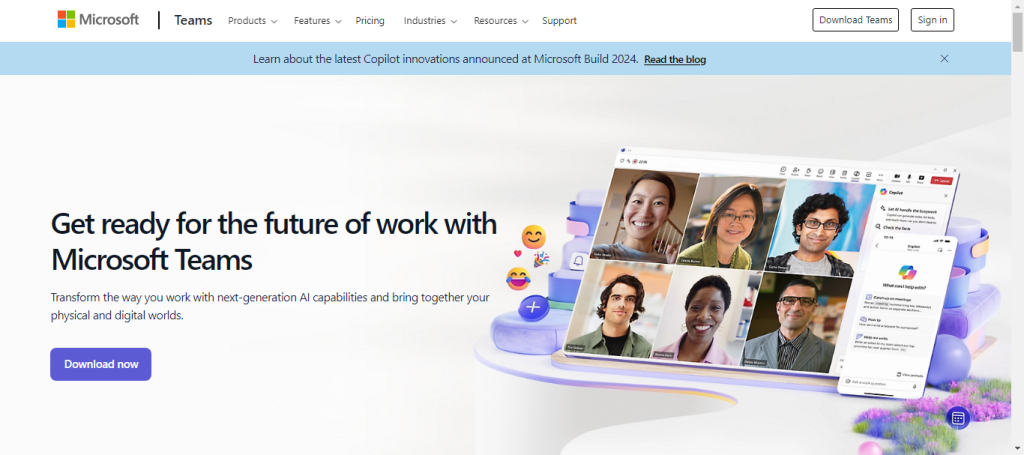
- Why Should Pick It: Microsoft Teams combines chat, video conferencing, and file sharing into a single, cohesive platform. Integrated with the Microsoft 365 suite, it offers unparalleled access to tools like Word, Excel, and SharePoint. Its advanced security features and compliance capabilities make it ideal for organizations that prioritize data security and integration.
- Who It’s For: Product managers, engineers, and app founders in organizations that already use Microsoft 365, seeking a secure and integrated communication solution to streamline their workflows.
4. Discord

- Why Should Pick It: Originally designed for gamers, Discord has grown into a powerful communication tool for development teams. Its voice channels, real-time messaging, and community-building features are perfect for creating a vibrant, engaged team environment. The platform’s low-latency voice communication is particularly beneficial for collaborative coding and quick problem-solving sessions.
- Who It’s For: Developers and engineers who prefer a less formal, highly interactive communication platform that fosters a strong sense of community and collaboration.
5. Google Meet
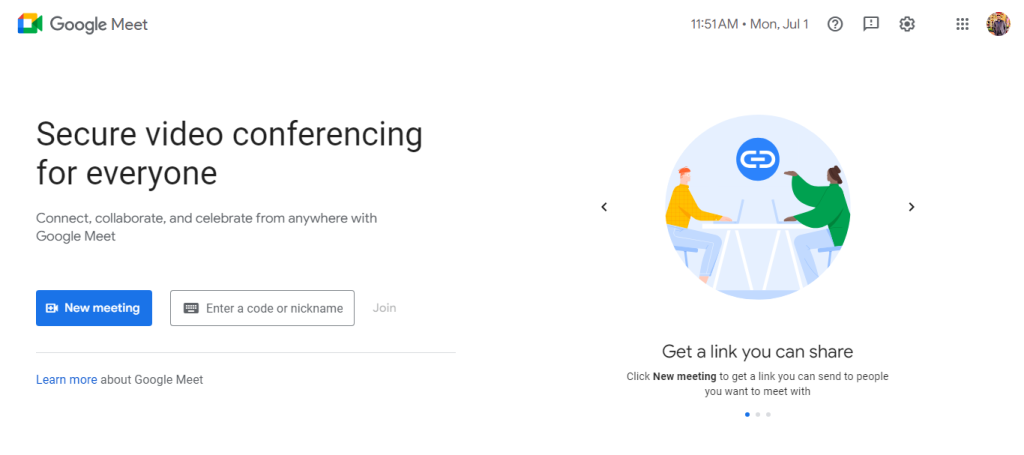
- Why Should Pick It: Google Meet offers seamless integration with Google Workspace, providing a straightforward and efficient video conferencing solution. Its user-friendly interface and quick setup make it easy to jump into meetings directly from your calendar. Google Meet’s real-time captioning and large participant capacity are additional bonuses for large development teams.
- Who It’s For: Development teams and product managers already using Google Workspace, looking for an easy-to-use video conferencing tool that integrates well with their existing tools and workflows.
6. Webex
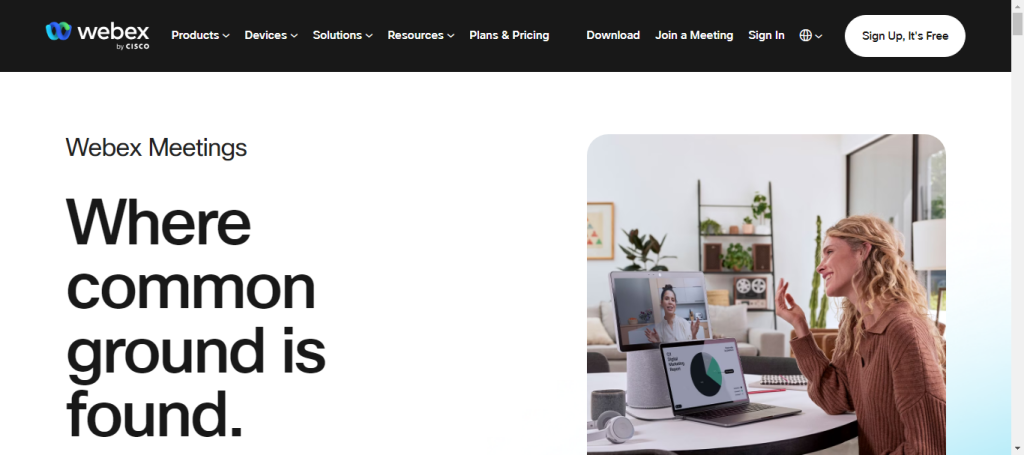
- Why Should Pick It: Webex is renowned for its robust security features and reliability in hosting large-scale virtual meetings and webinars. It offers a comprehensive suite of tools including video conferencing, messaging, and file sharing, ensuring teams stay connected and productive. Webex’s high-quality audio and video capabilities make it ideal for detailed technical discussions and presentations.
- Who It’s For: Engineers, product managers, and app founders who need a secure, reliable, and scalable communication platform for hosting everything from daily stand-ups to large-scale webinars.
7 Best Documentation Tools
When it comes to organizing and sharing knowledge, having the right documentation tools is crucial. Here are some top picks that can make a significant difference for developers, product managers, engineers, and app founders.
1. Notion
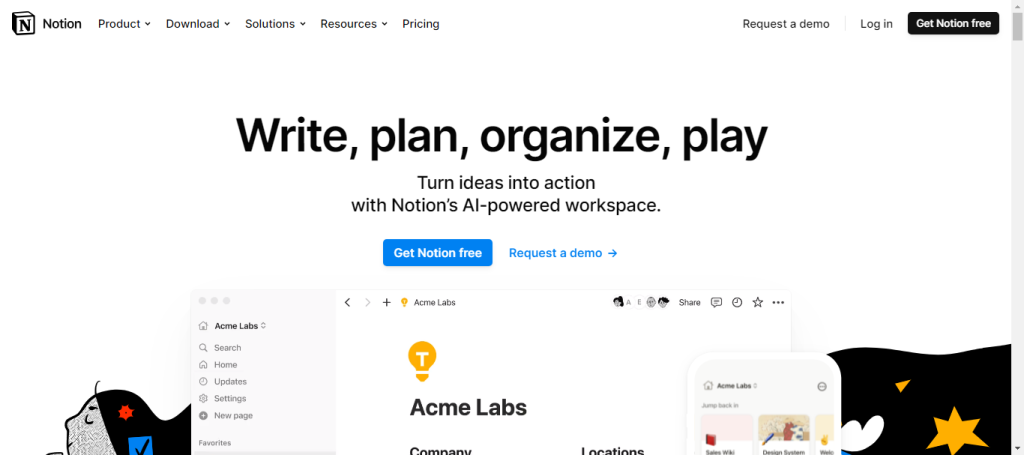
- Why Should Pick It: Notion is an all-in-one workspace that blends notes, tasks, databases, and project management into a single platform. Its versatility and extensive customization options make it a favorite among tech teams.
- Who It’s For: Notion is ideal for developers and product managers who need a flexible tool to manage both personal and team projects. Its modular structure allows users to tailor the workspace to their specific needs, from simple note-taking to complex project tracking.
2. Bit
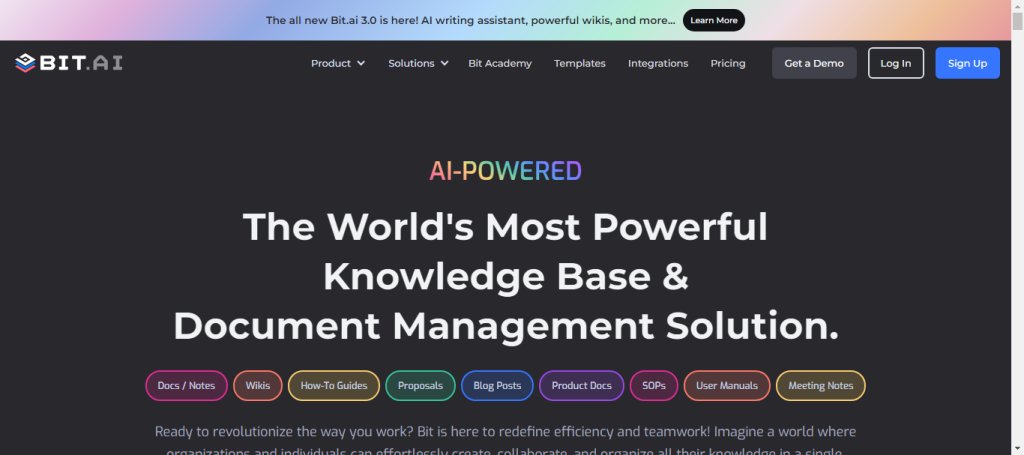
- Why Should Pick It: Bit is designed to streamline document collaboration. It offers real-time editing, smart workspaces, and robust sharing options, making it perfect for collaborative projects.
- Who It’s For: Engineers and app founders will appreciate Bit’s ability to keep everyone on the same page with seamless document sharing and collaboration. It’s especially useful for teams working remotely or across different time zones.
3. Confluence
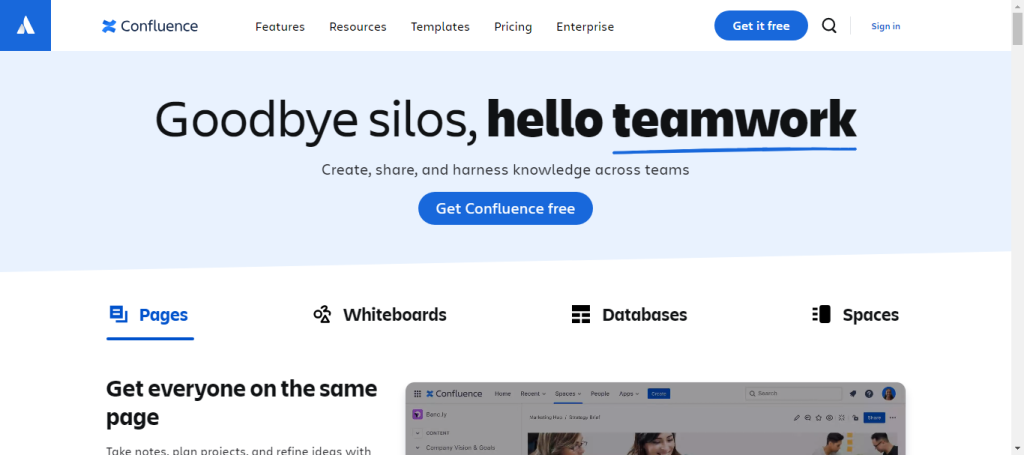
- Why Should Pick It: Confluence, by Atlassian, integrates seamlessly with tools like Jira, making it a powerful documentation tool for agile teams. It offers templates, collaborative editing, and strong version control.
- Who It’s For: Confluence is best suited for developers and product managers who are already using Atlassian products. It’s perfect for creating and maintaining a comprehensive knowledge base, meeting notes, and project documentation.
4. Google Docs
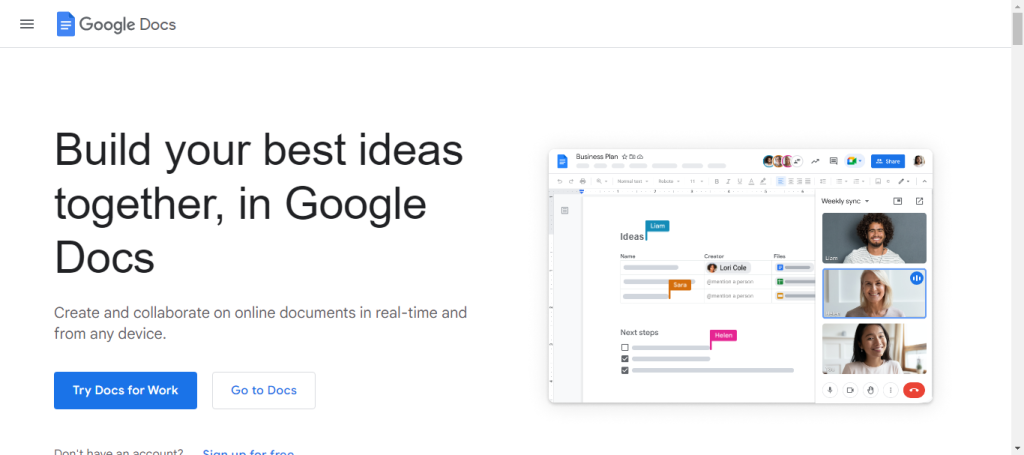
- Why Should Pick It: Google Docs is a staple in online document collaboration. It’s user-friendly, offers real-time editing, and integrates effortlessly with other Google Workspace tools.
- Who It’s For: Developers and engineers looking for a straightforward, no-frills documentation tool will find Google Docs invaluable. It’s great for quick collaboration, drafting documents, and sharing with a wide audience.
5. Dropbox Paper
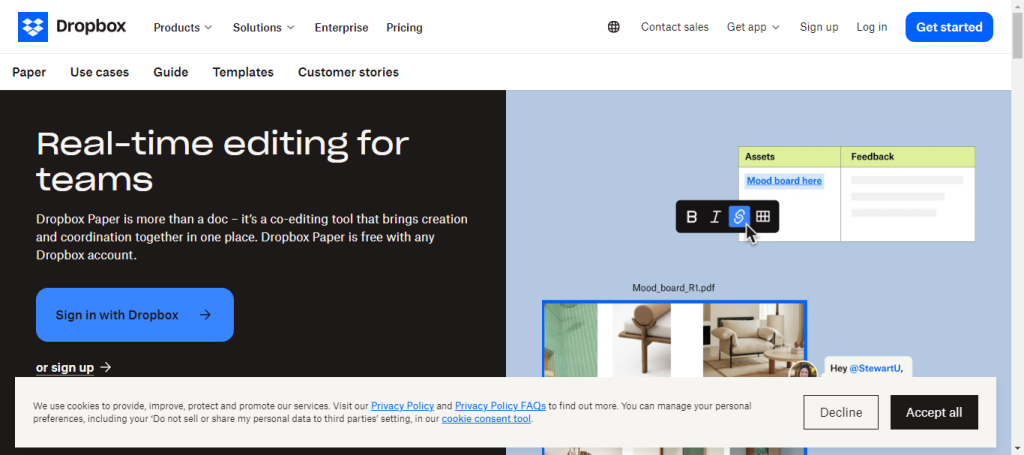
- Why Should Pick It: Dropbox Paper combines document creation with task management features. It supports media embedding, and collaborative editing, and integrates with Dropbox’s file storage.
- Who It’s For: Product managers and app founders will find Dropbox Paper useful for combining rich media content with documentation. Its seamless integration with Dropbox makes it ideal for teams already using Dropbox for file management.
6. Evernote
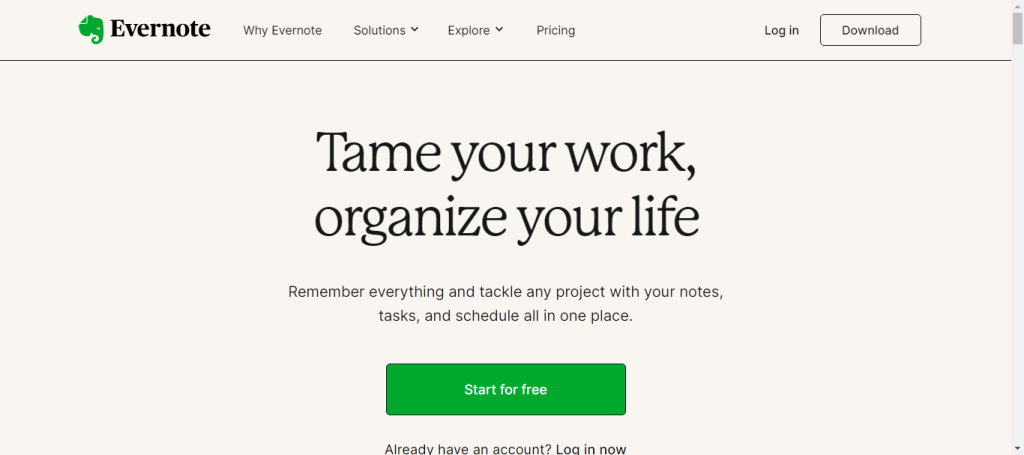
- Why Should Pick It: Evernote excels at note-taking and organizing information. Its powerful search functionality and cross-platform availability make it a reliable tool for personal and professional use.
- Who It’s For: Engineers and developers who need a robust tool for capturing ideas, meeting notes, and research will benefit from Evernote’s organizational features. It’s also great for syncing notes across multiple devices.
7. Microsoft OneNote
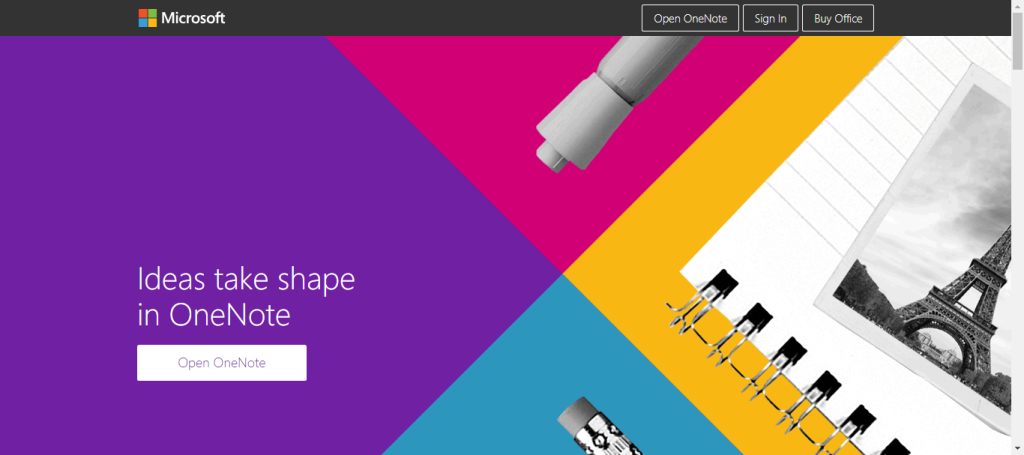
- Why Should Pick It: Microsoft OneNote offers a flexible note-taking experience with deep integration into the Microsoft ecosystem. It supports text, images, audio, and video notes.
- Who It’s For: For developers and product managers who are embedded in the Microsoft ecosystem, OneNote is an excellent choice. Its versatility in capturing different types of content makes it suitable for detailed project documentation and brainstorming sessions.
5 Best Code Collaboration and Version Control Tools
When it comes to building robust AI applications, effective code collaboration and version control are crucial. These tools not only help in managing code versions but also streamline collaboration among developers, ensuring seamless integration and deployment. Here’s a look at some of the top code collaboration and version control tools that can transform your workflow.
1. GitHub
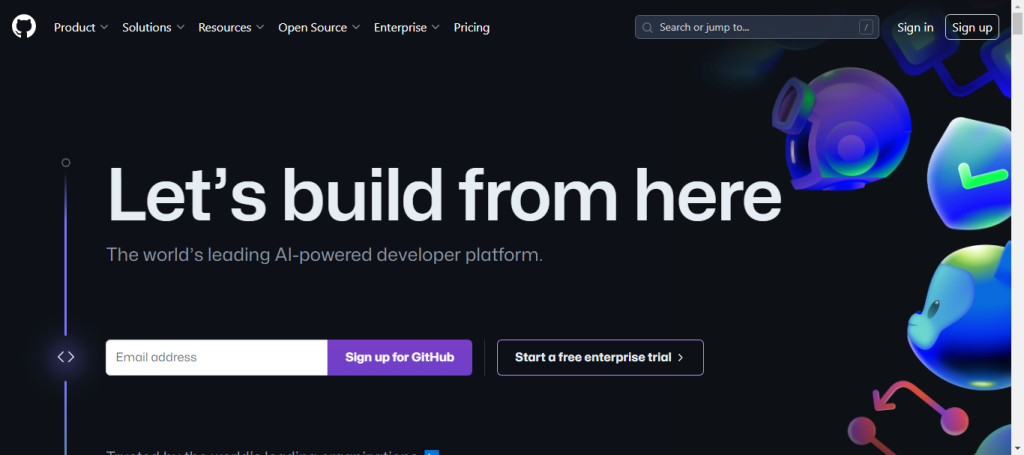
- Why Should Pick It: GitHub is the go-to platform for millions of developers worldwide. It offers an unparalleled suite of features for code management, including branching, pull requests, and code reviews. GitHub’s powerful integration with numerous CI/CD tools and its vast community support make it a top choice for any development team.
- Who It’s For: GitHub is ideal for developers, product managers, engineers, and app founders who are looking for a comprehensive and user-friendly platform to manage their code. Whether you’re working on open-source projects or private repositories, GitHub provides the tools needed to collaborate efficiently and effectively.
2. GitLab
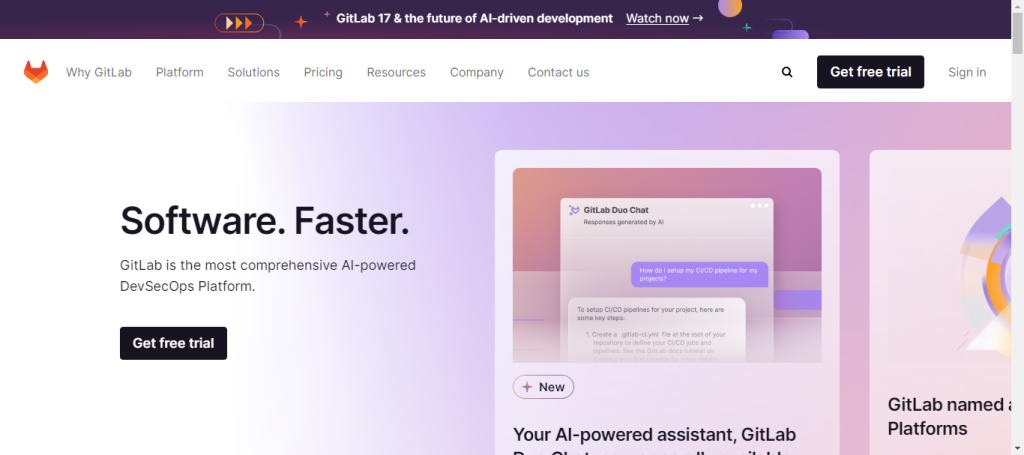
- Why Should Pick It: GitLab is more than just a version control system; it’s an all-in-one DevOps platform. It combines source code management, CI/CD, and monitoring in a single application. This holistic approach simplifies the development lifecycle, making it easier to manage projects from planning to deployment.
- Who It’s For: GitLab is perfect for teams seeking a unified solution for all their DevOps needs. It’s particularly useful for product managers and engineers who want to streamline their workflows and improve productivity with integrated tools for continuous integration and continuous deployment.
3. Bitbucket
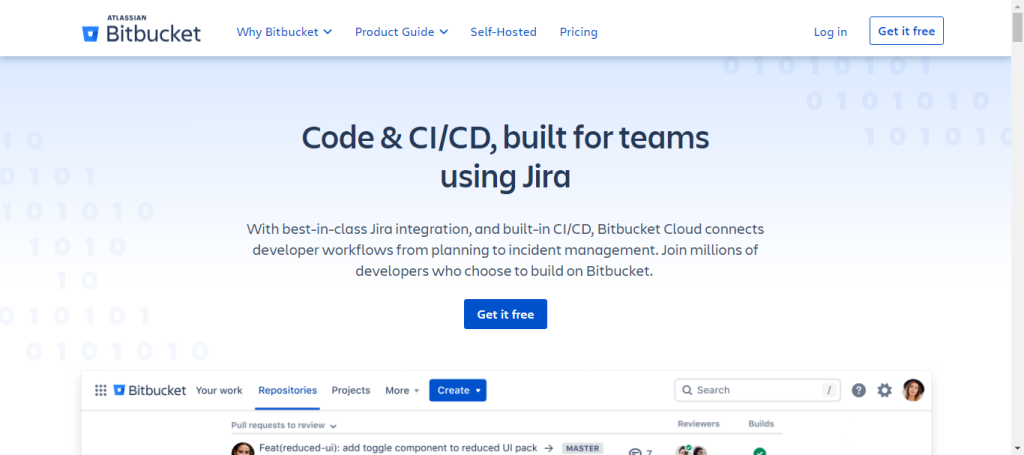
- Why Should Pick It: Bitbucket stands out for its seamless integration with other Atlassian products like Jira and Trello, making it an excellent choice for teams already using these tools. It offers robust code collaboration features, including in-line commenting and powerful branching models, all within a secure environment.
- Who It’s For: Bitbucket is tailored for developers and project managers who need a reliable and secure platform for managing their repositories. It’s especially beneficial for teams that rely on Atlassian’s suite of tools, providing a cohesive and integrated development experience.
4. SourceForge
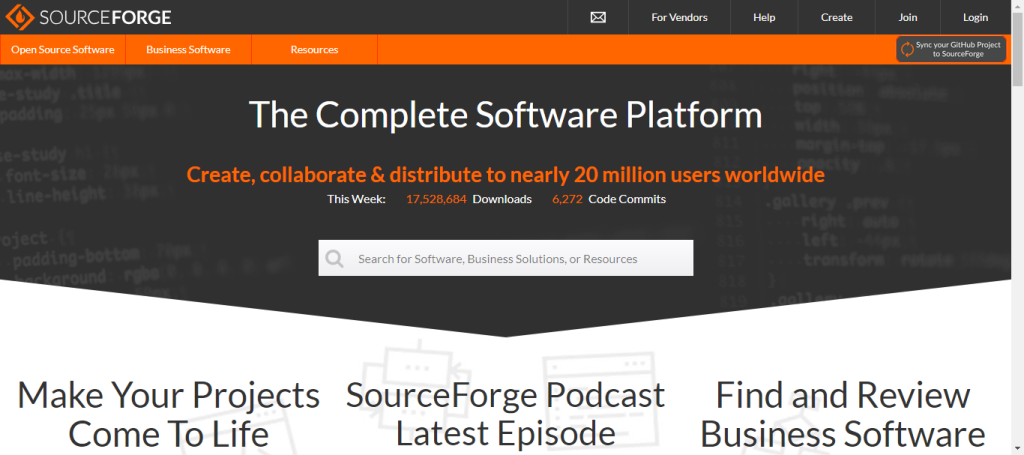
- Why Should Pick It: SourceForge has a long-standing reputation in the developer community, particularly for open-source projects. It offers a comprehensive set of tools for code management, including version control, bug tracking, and project management. SourceForge also boasts a large directory of open-source software, making it a valuable resource for developers.
- Who It’s For: SourceForge is best suited for developers and engineers working on open-source projects. Its extensive community support and robust project management features make it an excellent choice for the collaborative development and distribution of software.
5. Azure Repos
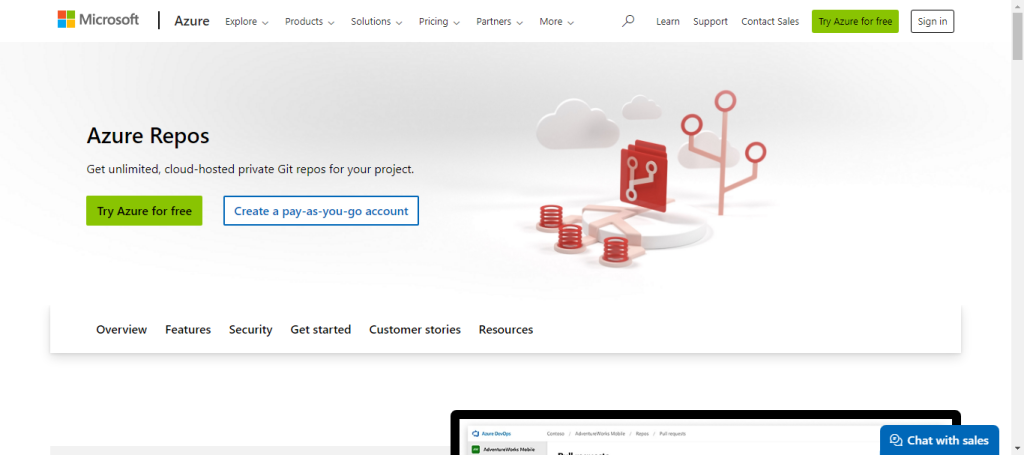
- Why Should Pick It: Azure Repos, part of the Azure DevOps suite, provides unlimited cloud-hosted private Git repos. It’s highly scalable and integrates seamlessly with other Azure services, making it ideal for teams working within the Microsoft ecosystem. Azure Repos supports all Git functionalities along with advanced file management capabilities.
- Who It’s For: Azure Repos is designed for development teams, engineers, and app founders who are deeply integrated into the Microsoft environment. Its seamless integration with Azure DevOps tools makes it a powerful option for managing and automating workflows across the entire development lifecycle.
4 Leading Task Management Tools
Efficient task management is crucial for keeping projects on track, especially in the fast-paced world of AI development. Here are some top task management tools that can help you and your team stay organized and productive.
1. Todoist
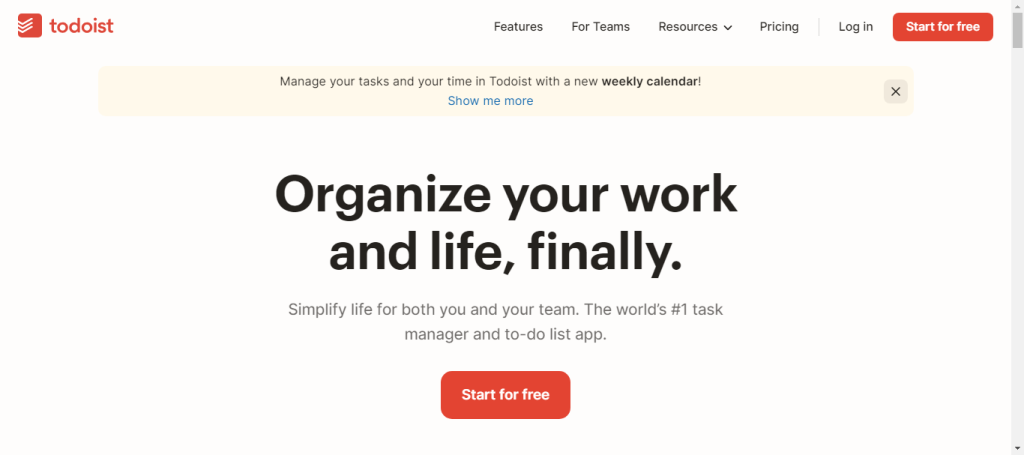
- Why Should Pick It: Todoist stands out for its simplicity and powerful features. It offers a clean, intuitive interface that makes task management effortless. With features like task prioritization, project categorization, and real-time collaboration, Todoist ensures that no task falls through the cracks.
- Who It’s For: Developers, product managers, engineers, and app founders who need a straightforward yet robust tool to manage their daily tasks and long-term projects will find Todoist invaluable. Its versatility and ease of use make it ideal for both individual task tracking and team collaboration.
2. TickTick
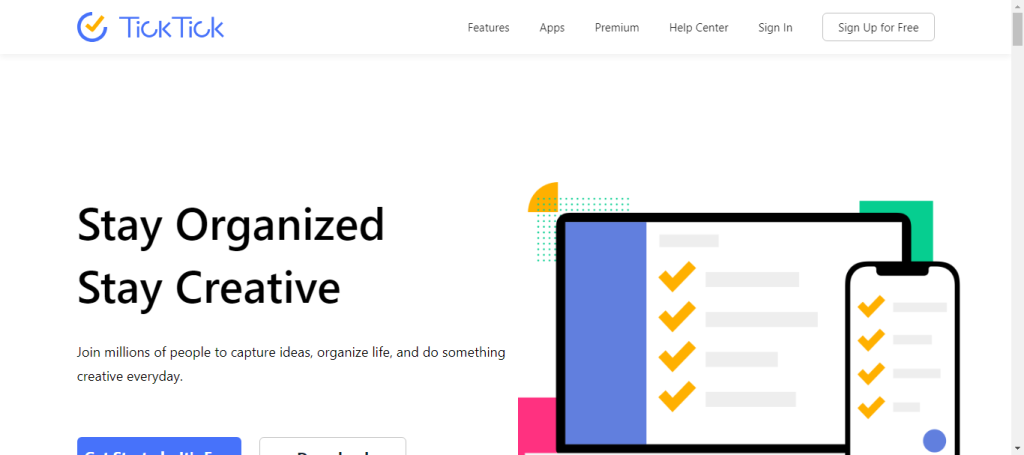
- Why Should Pick It: TickTick combines the best of task management and calendar scheduling in one app. With its powerful features like customizable reminders, recurring tasks, and an integrated calendar view, TickTick helps you keep your schedule and tasks perfectly aligned.
- Who It’s For: If you’re a developer or a product manager juggling multiple projects, or an engineer balancing daily tasks with long-term goals, TickTick is designed for you. It’s particularly useful for app founders who need to stay on top of both strategic planning and day-to-day operations.
3. Any.do
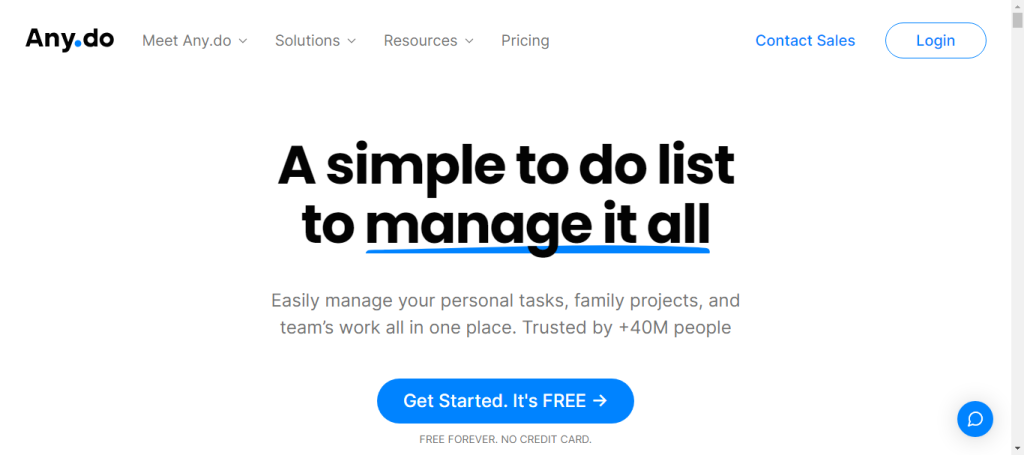
- Why Should Pick It: Any.do excels with its sleek design and seamless integration across devices. It offers features like voice entry for tasks, smart reminders, and collaboration capabilities, making it a standout choice for task management.
- Who It’s For: Any.do is perfect for those who value accessibility and a user-friendly interface. Developers, engineers, and product managers who often switch between devices will appreciate how Any.do keep everything in sync. App founders who need a reliable tool to keep their team organized and on task will also find it incredibly useful.
4. Microsoft To Do
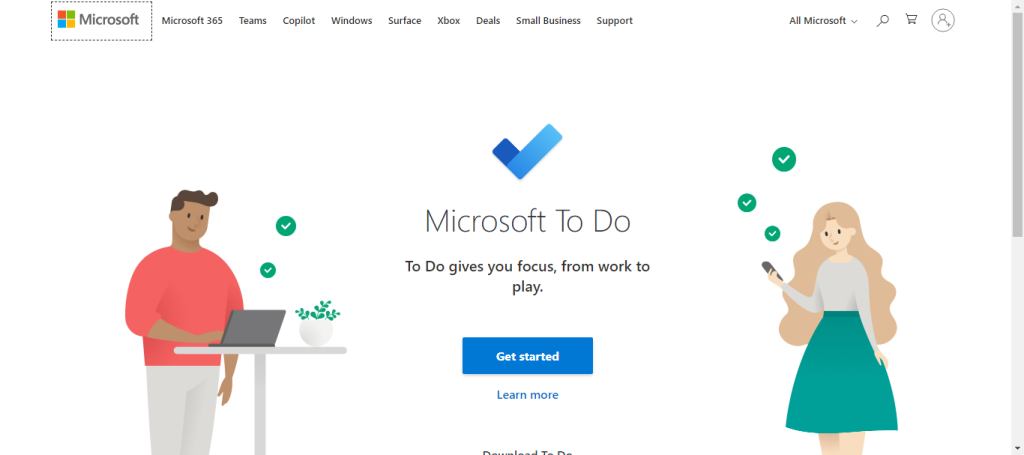
- Why Should Pick It: Microsoft To Do integrates seamlessly with other Microsoft products, offering a familiar environment for those already using Office 365. Its features include task lists, due dates, reminders, and the ability to share lists with team members, making it a comprehensive tool for task management.
- Who It’s For: Developers, engineers, and product managers who are embedded in the Microsoft ecosystem will find Microsoft To Do particularly advantageous. For app founders looking for a robust, enterprise-level task management solution that integrates with their existing tools, this is an excellent choice.
5 Top Collaborative Whiteboarding and Visual Collaboration Tools
When it comes to fostering creativity and visual collaboration, having the right whiteboarding tools is essential. These tools not only help in brainstorming sessions but also in planning, designing, and organizing projects. Here are the best picks for developers, product managers, engineers, and app founders:
1. Miro
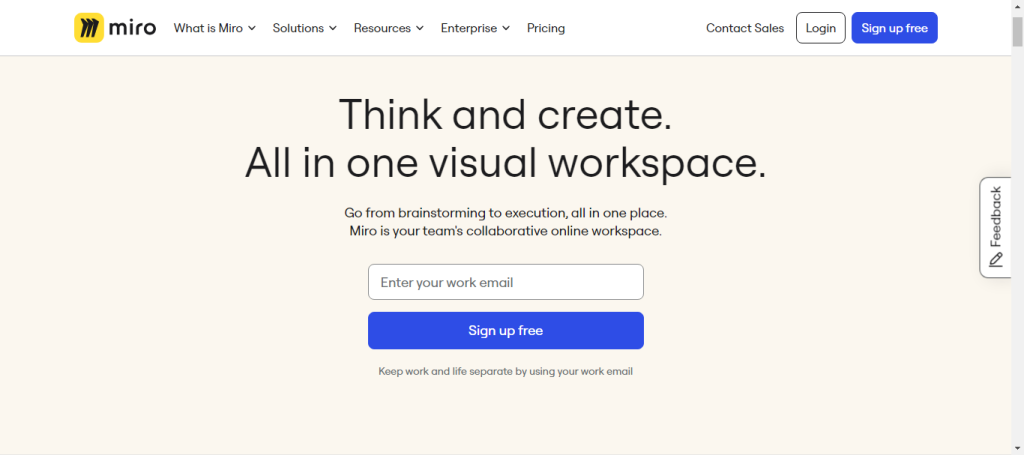
- Why Should Pick It: Miro stands out as a top choice for its extensive range of features tailored for remote collaboration. It offers a vast library of templates, real-time collaboration capabilities, and integration with popular project management tools. Whether you’re brainstorming ideas, mapping out user journeys, or conducting agile ceremonies, Miro provides a flexible and intuitive platform.
- Who It’s For: Ideal for developers, product managers, engineers, and app founders who need a robust tool for visual brainstorming and project planning. Miro is perfect for teams that value flexibility and need a space to collaborate creatively, regardless of their location.
2. Lucidspark
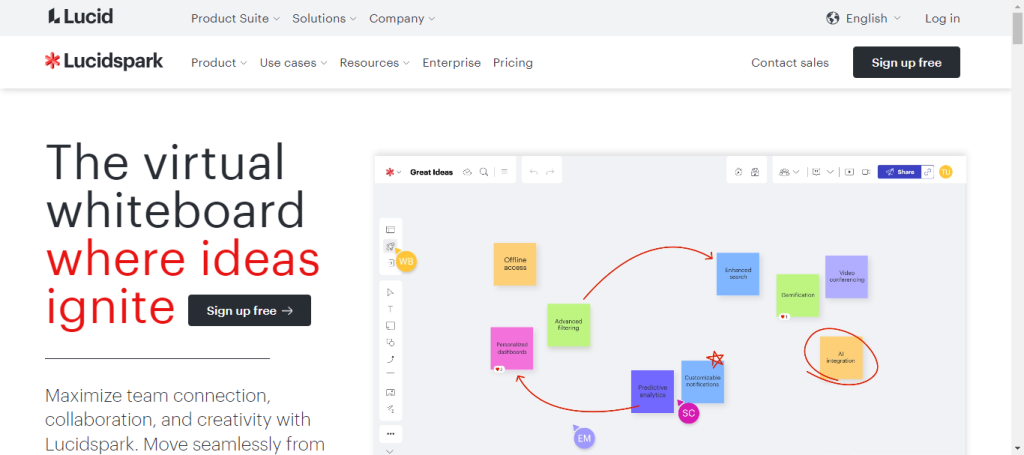
- Why Should Pick It: Lucidspark is a powerful tool designed for dynamic and interactive brainstorming sessions. Its user-friendly interface makes it easy to quickly capture and organize ideas. With features like sticky notes, freehand drawing, and voting, Lucidspark fosters active participation from all team members.
- Who It’s For: This tool is a great fit for product managers and engineers who thrive on interactive and engaging brainstorming sessions. Lucidspark is also excellent for developers and app founders looking to turn initial concepts into actionable plans with their teams.
3. Mural
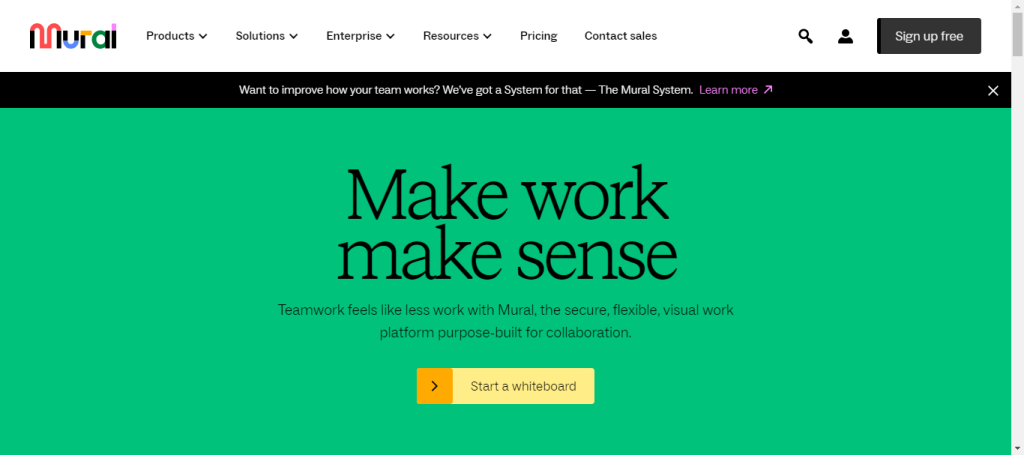
- Why Should Pick It: Mural excels in facilitating visual collaboration for distributed teams. It provides an immersive digital workspace where teams can brainstorm, plan, and share ideas visually. With its intuitive interface and variety of templates, Mural helps streamline the collaborative process, making it easy to capture complex ideas.
- Who It’s For: Mural is perfect for product managers, engineers, and developers who need a visual and interactive way to collaborate. It’s particularly useful for app founders who want to bring their vision to life and ensure all team members are aligned and engaged.
4. Jamboard
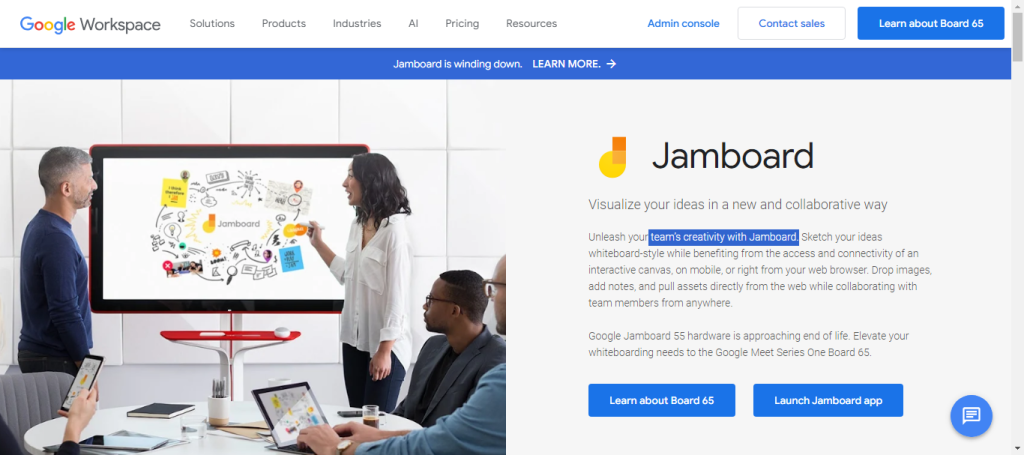
- Why Should Pick It: Google Jamboard offers a seamless experience for teams already using the Google Workspace suite. Its real-time collaboration features and integration with Google Drive make it a convenient choice for teams looking for a straightforward, yet effective whiteboarding tool.
- Who It’s For: This tool is ideal for developers and engineers who are comfortable within the Google ecosystem. Product managers and app founders who need a simple, integrated solution for brainstorming and project planning will also find Jamboard highly beneficial.
5. Conceptboard
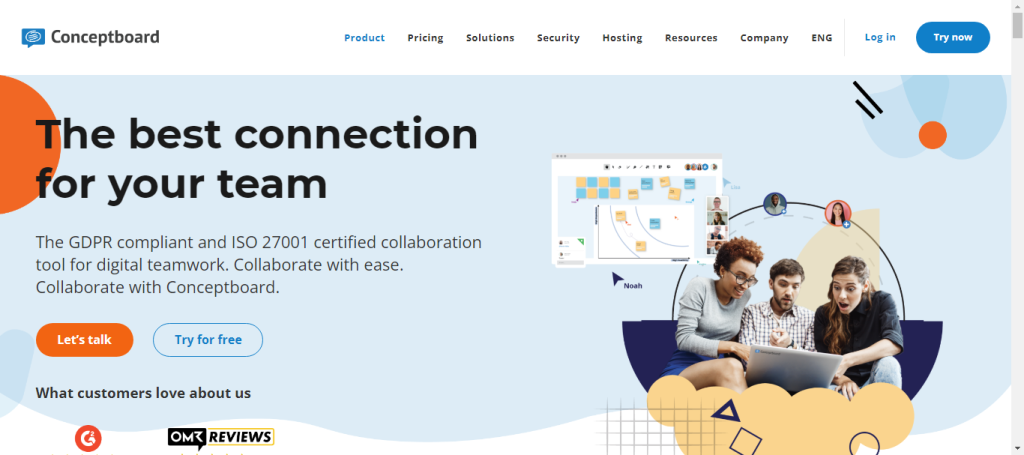
- Why Should Pick It: Conceptboard is designed to support real-time visual collaboration on a global scale. It offers a range of features such as infinite canvases, easy annotation, and robust security measures. Conceptboard excels in bringing distributed teams together, making collaboration smooth and efficient.
- Who It’s For: Developers, engineers, product managers, and app founders looking for a secure and versatile whiteboarding tool will find Conceptboard a valuable asset. It’s especially suited for teams that need a reliable platform to communicate complex ideas and workflows visually.
Rise of AI-Powered Development Tools
As we’ve seen, many collaboration tools exist to streamline teamwork and communication for AI development teams. However, the marketplace is shifting. With AI taking center stage, companies are increasingly turning towards software development tools that can build entire products or apps in less time.
That’s what CodeConductor can do!
CodeConductor – The World’s First AI Software Development Platform
CodeConductor isn’t just a collaboration tool. It’s a powerful, all-in-one platform designed to revolutionize software development.
CodeConductor allows you to host, build, launch, and grow your production-grade applications and enterprise-grade products entirely online. Whether you’re a startup or a well-established enterprise team, CodeConductor is built for everyone.
Here’s the beauty of CodeConductor: simply describe your concept, and the built-in AI takes care of the rest. No more lengthy coding sessions – CodeConductor lets you focus on your vision.
Wrapping Up!
Choosing the right collaboration tools is essential for the success of AI development teams.
From project management and version control to communication and AI-powered development, each mentioned above tool enhances productivity and innovation.
Hence, the right tools can change your team’s workflow, driving projects to successful completion faster and more efficiently.
Also, give a chance to CodeConductor.AI and streamline your software development process. Book a free demo to know more.
Questions Curious Minds Want to Know
1. How can AI development teams ensure data security while using collaboration tools?
Implement robust encryption, access controls, and regular security audits to ensure data security. Use tools with built-in security features tailored for AI projects.
2. What are the challenges of using collaboration tools in remote AI development teams?
Challenges include time zone differences, maintaining consistent communication, and ensuring data synchronization. Solutions involve using asynchronous communication tools and regular virtual meetings.
3. How do collaboration tools enhance productivity in AI development projects?
Collaboration tools streamline communication, facilitate project management, and enable real-time collaboration, thus reducing project delays and improving overall productivity.
4. What role does project management software play in AI development?
Project management tools help track progress, allocate resources, and maintain deadlines, ensuring smooth project execution and accountability.
5. Can collaboration tools be customized for specific AI workflows?
Yes, many collaboration tools offer APIs and integrations allowing customization to fit specific AI workflows and processes.
6. How important is real-time communication in AI development?
Real-time communication is crucial for addressing issues promptly, coordinating tasks, and maintaining alignment among team members, enhancing overall project efficiency.
7. How do collaboration tools support continuous integration/continuous deployment (CI/CD) in AI projects?
Collaboration tools integrate with CI/CD pipelines to automate testing and deployment, ensuring faster and more reliable releases.
8. How can AI teams ensure seamless integration between different collaboration tools?
Utilize tools with robust APIs and integration capabilities, and implement middleware solutions to bridge gaps between different platforms, ensuring smooth data flow.
9. What are the advantages of using cloud-based collaboration tools for AI development?
Cloud-based tools offer scalability, remote accessibility, real-time updates, and enhanced data storage, enabling efficient collaboration for distributed AI teams.

Founder CodeConductor

